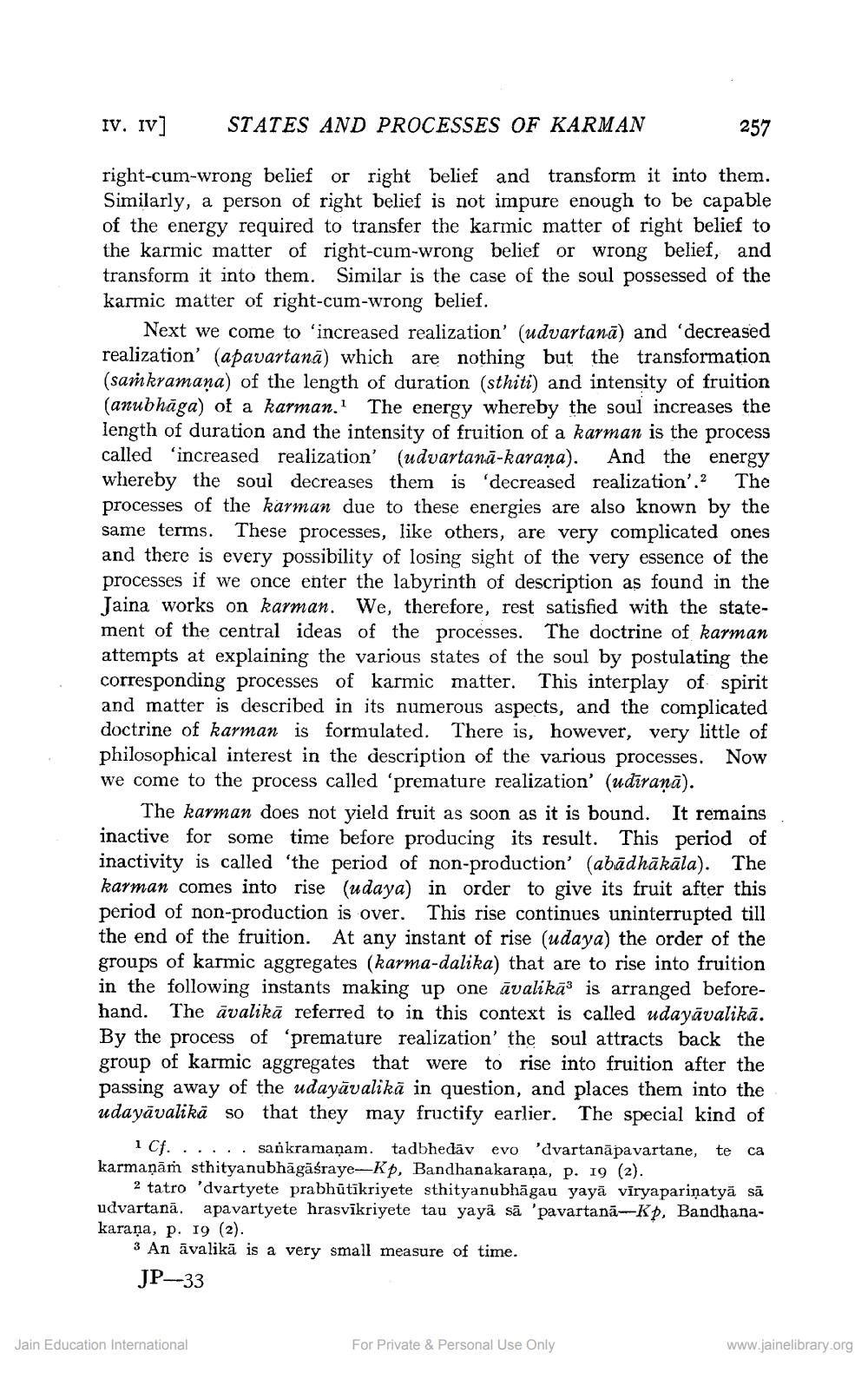________________
IV. IV]
STATES AND PROCESSES OF KARMAN
257
right-cum-wrong belief or right belief and transform it into them. Similarly, a person of right belief is not impure enough to be capable of the energy required to transfer the karmic matter of right belief to the karmic matter of right-cum-wrong belief or wrong belief, and transform it into them. Similar is the case of the soul possessed of the karmic matter of right-cum-wrong belief.
Next we come to increased realization' (udvartanā) and 'decreased realization' (apavartanā) which are nothing but the transformation (samkramaņa) of the length of duration (sthiti) and intensity of fruition (anubhāga) of a karman. The energy whereby the soul increases the length of duration and the intensity of fruition of a karman is the process called 'increased realization' (udvartanā-karana). And the energy whereby the soul decreases them is decreased realization'.? The processes of the karman due to these energies are also known by the same terms. These processes, like others, are very complicated ones and there is every possibility of losing sight of the very essence of the processes if we once enter the labyrinth of description as found in the Jaina works on karman. We, therefore, rest satisfied with the statement of the central ideas of the processes. The doctrine of karman attempts at explaining the various states of the soul by postulating the corresponding processes of karmic matter. This interplay of spirit and matter is described in its numerous aspects, and the complicated doctrine of karman is formulated. There is, however, very little of philosophical interest in the description of the various processes. Now we come to the process called 'premature realization' (udiraņā).
The karman does not yield fruit as soon as it is bound. It remains inactive for some time before producing its result. This period of inactivity is called 'the period of non-production' (abādhākāla). The karman comes into rise (udaya) in order to give its fruit after this period of non-production is over. This rise continues uninterrupted till the end of the fruition. At any instant of rise (udaya) the order of the groups of karmic aggregates (karma-dalika) that are to rise into fruition in the following instants making up one avalikās is arranged beforehand. The ävalikā referred to in this context is called udayavalikā. By the process of 'premature realization' the soul attracts back the group of karmic aggregates that were to rise into fruition after the passing away of the udayāvalikā in question, and places them into the udayāvalikā so that they may fructify earlier. The special kind of
1 Cf. . . . . . sankramaņam. tadbhedāv evo 'dvartanāpavartane, te ca karmaņām sthityanubhāgäśraye-Kp, Bandhanakaraṇa, p. 19 (2).
2 tatro 'dvartyete prabhūtikriyete sthityanubhāgau yayā viryaparinatyā sā udvartanā. apavartyete hrasvikriyete tau yayà sā 'pavartanā-Kp, Bandhanakarana, p. 19 (2).
3 An avalikā is a very small measure of time. JP--33
Jain Education International
For Private & Personal Use Only
www.jainelibrary.org




